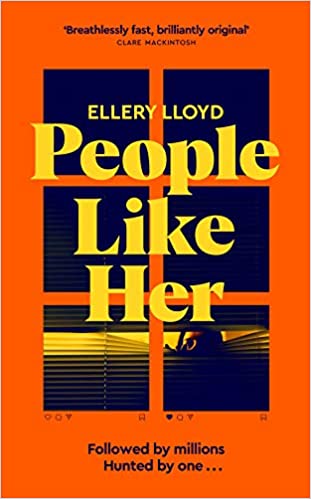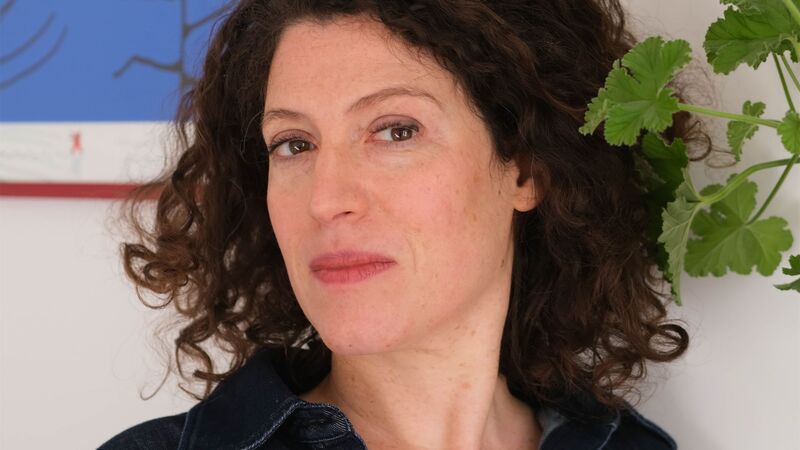You are viewing your 1 free article this month. Login to read more articles.
Collette Lyons and Paul Vlitos on their thriller and the unseen damage of social media
Married duo Collette Lyons and Paul Vlitos have co-created a psychological thriller that is also a sharp take on the impact of social media influencers
This January, crime will pay—for publishers at least. It’s a strong month for nefarious tales of all hues but the best psychological thriller in ages comes from a brand new name, Ellery Lloyd, a pseudonym for husband-and-wife writing team Collette Lyons and Paul Vlitos. Their first book together, People Like Her, is both a gripping thriller, with satisfying twists and meticulous plotting, and a razor-sharp take on our social media-obsessed world.
Owing to the pandemic, I have not been able to interview anyone face-to-face since mid-February. But, during what may prove to be a break between lockdowns, Lyons and Vlitos are kind enough to invite me around to their east London house, where we sit, socially distanced, in the garden. The pair, who have been married for nearly 10 years, explain they had always talked about writing something together. Lyons, who has a background in magazine journalism, tells me that as a reader “my preference is a thriller, something with ‘death’ in the title”, and that she had lots of ideas over the years, but never got around to actually writing them. “They were always really good, much better ideas for novels than I would have,” says Vlitos, supportively. He teaches creative writing at the University of Surrey and has published two novels with Orion. Then they had a baby, who proved an unexpected catalyst.
Their baby, who is now three, “just didn’t sleep, ever”, says Lyons ruefully, wincing slightly at the memory. This led to Lyons spending a great deal of time on Instagram during marathon feeds. It wasn’t an app that she had been particularly interested in before, “because I’d had other things to do and wasn’t trapped under a baby on a chair” she jokes. But now it held her interest, particularly, as the mother of a newborn searching for information and support: “I just found it fascinating, and a really rich seam for a thriller.”
The baby’s aforementioned resistance to naps also meant “the only way we could get her to sleep was walking her round and round in a pushchair. Frequently we would spend two hours walking around Victoria Park, and ended up discussing possible plots.”
It is a job and it’s a really hard one, and we absolutely didn’t want to make Emmy a demon. It was really important that she was an example of how bloody hard it is
People Like Her is the result of those long hours; a terrific thriller for the Instagram age, told from three viewpoints. The first is an Instagram “mumfluencer” known as Mamabare (real name Emmy), whose million or so “followers” can’t get enough of her daily life with three-year-old Coco and new baby Bear. Emmy narrates the first chapter, bright and breezy, talking about her “journey” to Instamum fame, explaining she built her brand on “honesty” and promising she will always “tell it like it is”.
When Emmy’s husband Dan takes over the narrative, he immediately undercuts Emmy’s version of events: “Bullshit” is his first, brutal assessment, and he goes on to contradict nearly everything she has said. Dan was once the young novelist du jour, but he hasn’t published a book in years. He is slightly cynical of his wife’s achievements, believing anyone could be an influencer and attract a million followers, although it’s beneath him, obviously, as a serious novelist. The third narrator is an anonymous “follower” of Mamabare, who bears a terrible grudge against her—we discover why over the course of the novel—and intends to track her down in real life to take revenge.
People Like Her is not the first thriller with a strong social media element. But what makes it interesting is that it turns on its head the trope of a character making their online life look perfect when it isn’t. Emmy deliberately makes her life look worse on Instagram so as to appear “relatable” to her followers, the holy grail for advertisers. She may post about being so tired that she puts odd shoes on and dashes out of the door covered in baby sick, but Emmy, it turns out, is a shrewd and hard-working businesswoman, highly attuned to the demands of her job and the needs of her followers. She is just not entirely honest, and that is about to catch up with her…
Dual narratives
I’m curious about the logistics of two people writing the same novel. Lyons explains that, for the first draft, she wrote the chapters narrated by Emmy while Vlitos wrote Dan’s chapters—and most of the menacing anonymous “follower” chapters. But by the second draft they had discovered Google Docs. “So we can both go in and edit each other’s words without alerting each other to the changes,” Lyons says, laughing. Vlitos interjects: “We can see each other’s cursor, so it’s, ‘What are you doing in my chapter? Get out!’”
It was also helpful that, as Lyons says, “neither of us has a problem with the other one editing our work. My background is editing women’s mags and [Vlitos’] is creative-writing lecturing, so we have spent our whole careers telling other people what’s wrong with what they’ve written!” Vlitos jokes that working in a pair was also a bit like having a personal trainer “making you do five more press-ups than you think you can do” in terms of an extra twist, or a tighter observation. This really shows: People Like Her is, to continue the gym analogy, a finely honed thriller.
I don’t believe anyone who interacts with social media a lot is unscathed by it
It explores the Faustian pact made by influencers who make a living by sharing every last, carefully curated detail of their lives, and asks what it might mean when the world knows so much about your tiny children. But it is in no way dismissive of influencers or the job that they do. “I hope we’ve been even-handed with it,” says Lyons. “It is a job and it’s a really hard one, and we absolutely didn’t want to make Emmy a demon. It was really important that she was an example of how bloody hard it is. And how you get into it not knowing how hard it’s going to be, because it [appears to be] loads of people sipping chai lattes standing in front of murals.”
Fascinating insight
People Like Her is a fascinating insight into the work that goes on behind the scenes for a top-tier Instagram star. Emmy has an agent, Irene, capable of spotting an opportunity at a thousand paces; she knows how to monetise every single thing in her clients’ lives. Irene hires Winter, an apparently clueless wannabe influencer, to help run the Mamabare account. It shows how social media can be a force for good, with people finding support and comfort, as well as a dangerous obsession.
Lyons’ time following the Instamums is over now, but at the time “it was having an impact on you, wasn’t it?” says Vlitos, gently, to his wife. “It was unsettling you…” Lyons thinks before she answers: “I don’t believe anyone who interacts with social media a lot is unscathed by it. I’m talking about people who live with people who are obsessed
by it, whether [those people] are consumers or creators of content, or the children of those people.
Extract
From fashion maven to flustered mama was just a happy accident, to be totally honest with you. The world started to lose interest in shiny magazines full of beautiful people so, thanks to shrinking budgets and declining readership, just as I was scaling the career ladder, it was kicked out from under me—and then on top of everything else, I found out I was pregnant.
Damn you, the internet, I thought. You owe me a new career—and it is going to need to be one I can build around having a baby.
And so I started blogging and vlogging—I called myself Barefoot, because my stilettos came with a side order of soul-baring. And you know what? Although it took me a while to find my stride, I got a real buzz out of connecting with like-minded ladies in real time.
Fast-forward to those first few months after giving birth and in the 937 hours I spent with my bum welded to the couch, my darling Coco attached to my milky boobs and the iPhone in my hand my only connection to the outside world, the community of women I met on the internet became a literal lifeline. And while blogging and vlogging were my first online loves, it was Instagram that stopped me from slipping too far into the postnatal fug.
“Unscathed might be the wrong word, but it’s not something that doesn’t have a psychological impact. And I hope we show a breadth of that in the book.”












